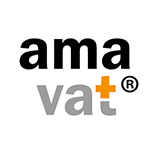The government wants to tighten VAT in the e-commerce sector. What will be changed?
The Council of Ministers has accepted a draft law to increase the effectiveness of VAT sealing. This means that banks and other financial institutions will be obliged to report, keep, store and send to the National Tax Administration (KAS) records of cross-border payments if a payment service provider makes more than 25 payments to the same payee in a quarter.
The bill implements EU Directive 2020/284, amending the VAT Directive with regard to the introduction of requirements for payment service providers.
Data at the tax office and the EU CESOP
The data collected will be:
- stored by the Head of KAS,
- placed in the EU CESOP system.
The CESOP system will collect data transmitted by the administrations of all EU countries. This is expected to create a comprehensive database on cross-border payments made within the European Union and with third countries. This will be another tool for detecting and reducing VAT collection irregularities.
VAT sealing for e-commerce. Regulatory changes by the end of 2023
The new regulations, resulting from the directive, are to take effect by December 31, 2023.
According to estimates by the Ministry of Finance, by using existing modern tools and technologies, the VAT gap in Poland has been reduced from over 24% in 2015 to 4,3%. in 2021.
The Finance Ministry plans that over a 10-year period, state budget revenues will increase by PLN 2.48 billion. Implementation of the directive should take place by December 31, 2023.
Source: Ministry of Finance Newsletter
If you have any questions about these or other services we offer, please feel free to contact
our experts: the contact form – amavat®
Your amavat® Team
We are an independent member of HLB. THE GLOBAL ADVISORY AND ACCOUNTING NETWORK.





